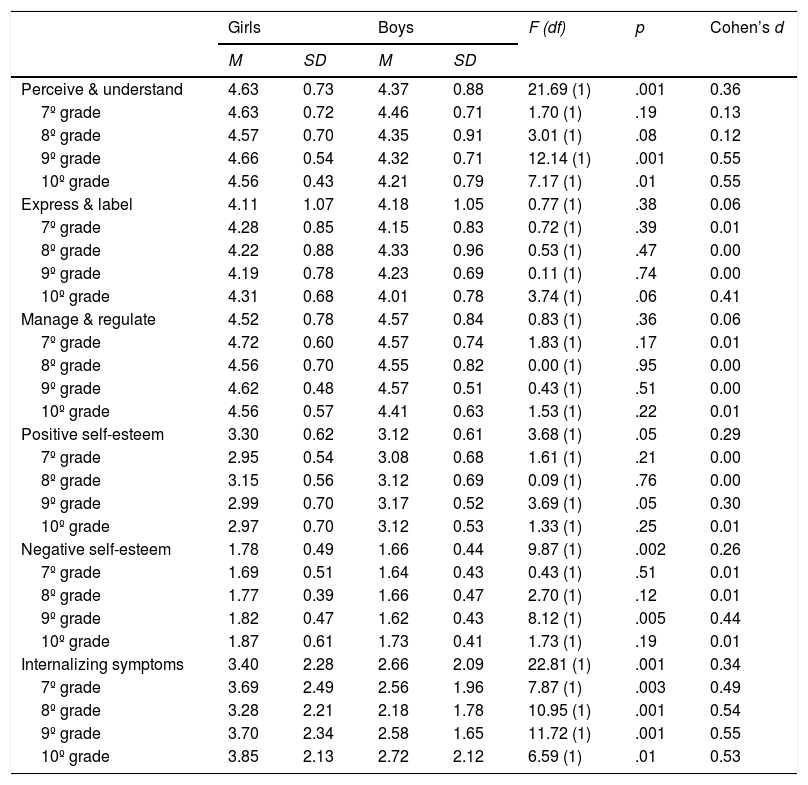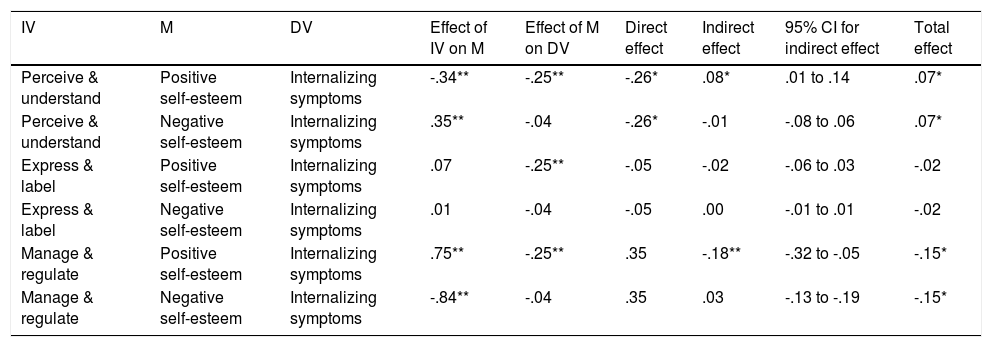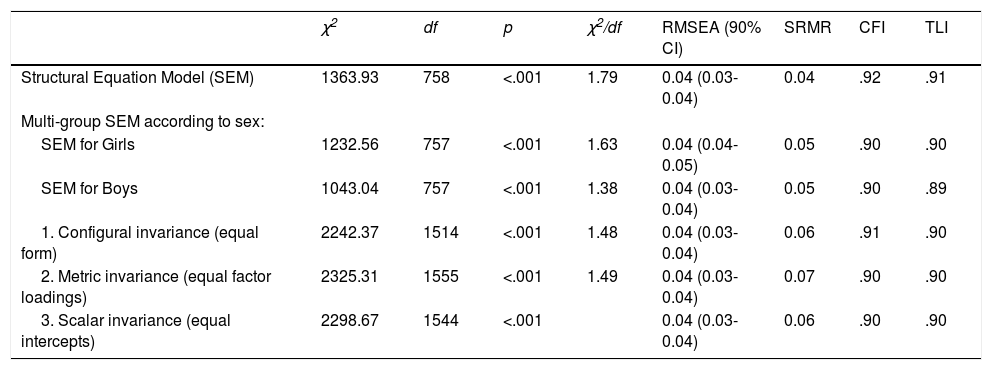Internalizing symptoms such as depressive mood, somatic complaints and anxiety among adolescents are a major and global concern for parents, educators and professionals. Empirical research suggests that high level of self-esteem during adolescents is associated with psychological adjustment and emotional well-being. This study examines self-esteem as a potential mediator in the interplay between emotional competencies and internalizing symptoms during adolescence. Self-report data from 855 Spanish adolescents (Mage = 13.6, SD = 1.09, 52% girls) were collected in two waves, using a longitudinal design. The mediation model was estimated using structural equation modelling (SEM). Results show that girls perceive and understand emotions better than boys, but they also perceive higher amounts of emotional distress, while boys showed higher levels of self-esteem. Results of structural equation modeling indicated that positive self-esteem function as a mediator between emotional competencies and long-term internalizing symptoms. Poor emotional competencies and low self-esteem are strongly associated with internalizing symptoms in adolescents. These findings have implications for future research and positive youth development considering that emotional abilities and self-esteem can protect adolescents from experiencing symptoms of depression and anxiety.
Los síntomas internalizantes como el estado de ánimo depresivo, las quejas somáticas y la ansiedad de los adolescentes son una preocupación importante y global para los padres, los educadores y los profesionales. Las investigaciones empíricas indican que una elevada autoestima está asociada con la adaptación psicológica y el bienestar emocional en la adolescencia. En el presente estudio se ha examinado la autoestima como posible mediador en la relación entre las competencias emocionales y los síntomas internalizantes durante la adolescencia. Los datos de auto-informes de 855 adolescentes españoles (M edad = 13.6, DT = 1.09, 52% chicas) se han recogido en dos momentos, utilizando un diseño longitudinal. El modelo de mediación se ha estimado utilizando modelos de ecuaciones estructurales (SEM). Los resultados han mostrado que las chicas perciben y entienden las emociones mejor que los chicos, pero también experimentan con mayor frecuencia angustia emocional, mientras que los chicos muestran mayores niveles de autoestima. Los resultados del modelo de ecuaciones estructurales indican que la autoestima positiva funciona como mediadora entre las competencias emocionales y los síntomas internalizantes a largo plazo. Las competencias emocionales deficientes y la baja autoestima están fuertemente asociadas con los síntomas internalizantes en los adolescentes. Estos resultados tienen implicaciones para las investigaciones futuras y el desarrollo positivo de los jóvenes, teniendo en cuenta que las competencias emocionales y la autoestima pueden proteger a los adolescentes de experimentar síntomas de depresión y ansiedad.











